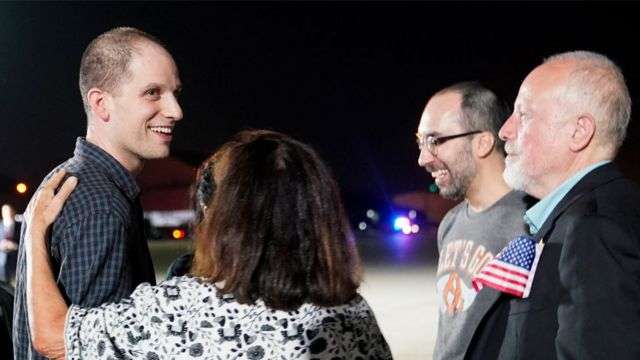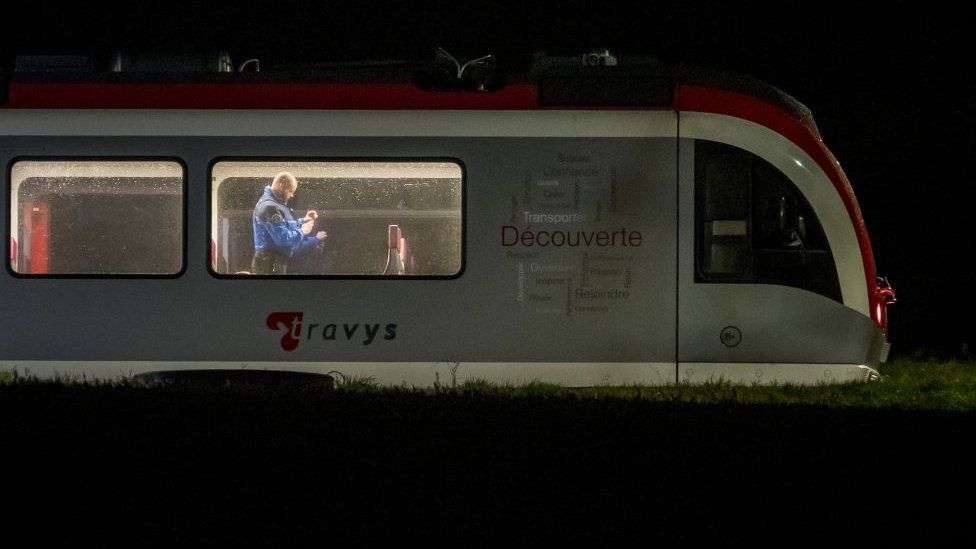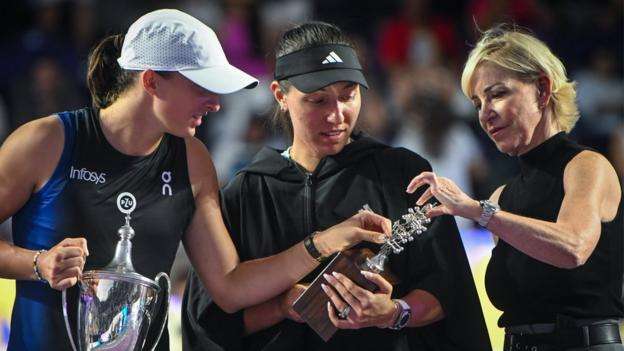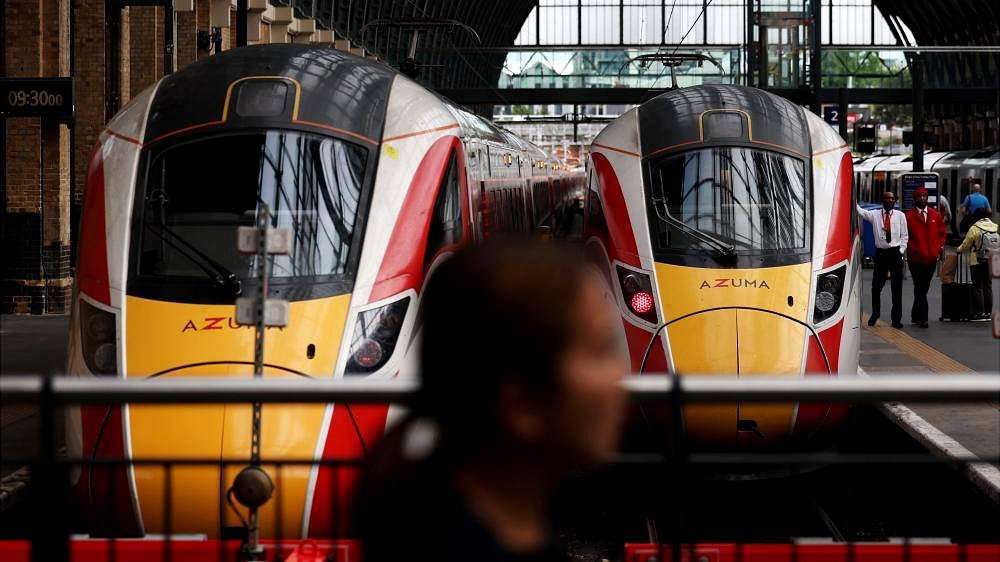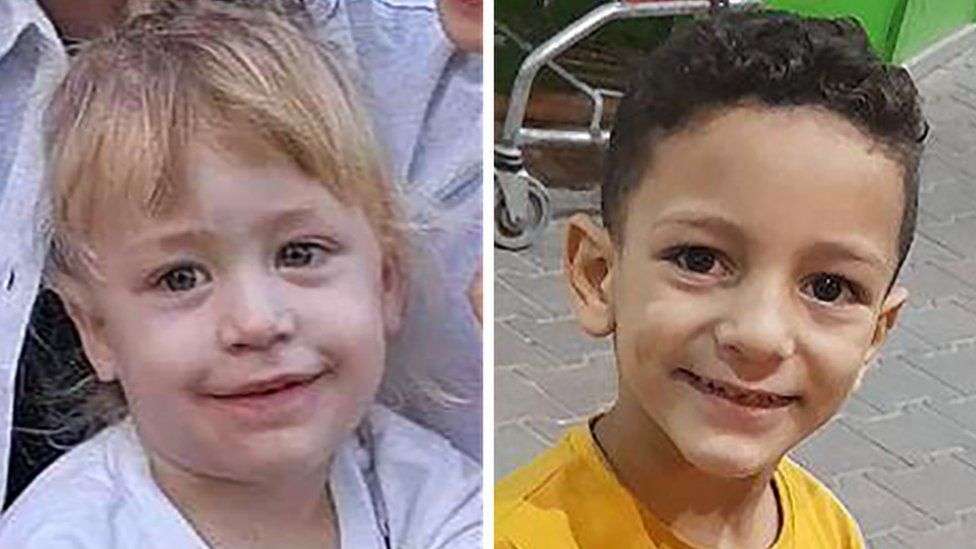Three Americans who were freed in a prisoner swap deal with Russia, including Wall Street Journal reporter Evan Gershkovich, have arrived back on US soil.
Mr Gershkovich, 32, was one of 16 people swapped for eight Russian prisoners in what has been described as the biggest exchange since the end of the Cold War between Russia and the West.
The exchange at an airfield in Turkey also included the release of former US marine Paul Whelan and Russian-American journalist Alsu Kurmasheva.
After touching down at Joint Base Andrews, in Maryland, Mr Gershkovich, Ms Kurmasheva and Mr Whelan emerged from the jet to cheers from those on the tarmac.
All three were greeted by US President Joe Biden and Vice-President Kamala Harris before they embraced their families.
They lingered on the tarmac for photographs and conversations before leaving the air base within an hour, as did Mr Biden and Ms Harris's motorcades.
Speaking ahead of their return, Mr Biden welcomed their release and declared: "Their brutal ordeal is over."
He praised the role played by America's allies, particularly Germany and Slovenia, and hailed the release of Mr Whelan, Mr Gershkovich and Ms Kurmasheva, as well as leading Kremlin critic Vladimir Kara-Murza, as a "feat of diplomacy".
The three released Americans were then sent to the Brooke Army Medical Centre in Texas for a medical check-up.
The deal had been more than 18 months in the making and appears to have hinged on Moscow's demand for the return of Vadim Krasikov, who was serving a life sentence in Germany for carrying out an assassination in a Berlin park.
He is now back in Russia. Krasikov always maintained in captivity that the false identity he went under was real, but the Kremlin has admitted since his release that he was an agent with the FSB security service.
In total, 24 people jailed in seven different countries were exchanged in Ankara, Turkey's presidency said.
The prisoners were held in the US, Germany, Poland, Slovenia, Norway, Russia and Belarus, it said in a statement.
Ten people, including two minors, were relocated to Russia, 13 prisoners to Germany, and three to the US, the statement added.
The eight prisoners who returned to Russia were serving sentences on a variety of criminal charges in the West.
Charges against the 16 held in Russia and Belarus included espionage and treason, but were generally considered by Western governments and rights organisations to be politically motivated.
Of the 13 staying in Germany, most either have German citizenship or are former Russian political prisoners.
The fate of the latter group seems unclear, as they have in effect been expelled from Russia. At least one of them, Ilya Yashin, has said in the past he did not want to be involved in a swap.
Another, Andrei Pivovarov, was due to be released within Russia in September after completing his sentence, his mother told the Insider website in an interview.
Oleg Orlov, 71, is a veteran Russian human rights campaigner and a founder of the long-standing and recently banned Memorial organisation.
The 13 also seem to include Mr Kara-Murza, who has dual UK-Russian citizenship and is resident in the US. It is thought he may return to the US separately.
In Russia, President Vladimir Putin personally greeted the Russians released from Western jails with bouquets of flowers at Moscow's Vnukovo Airport.
He embraced them warmly on a red carpet and said they would be given state awards.
Among those returned to Moscow in addition to Krasikov was a Russian couple, convicted of spying in Slovenia, who returned to Russia with their two children.
German citizen Rico Krieger, who was sentenced to death in Belarus before being pardoned by the country's leader Alexander Lukashenko earlier this week, has also been released.
Earlier prisoner swap discussions had included jailed Russian opposition leader Alexei Navalny, but the offer collapsed when he died in unclear circumstances in an Arctic penal colony in February.
His widow Yulia Navalnaya welcomed the swap, describing it as a "joy".
Three of the released dissidents were former regional leaders of Navalny's anti-corruption network, now branded extremist in Russia. Mr Yashin was also a close associate.
The exchange comes after days of speculation about a major swap between various countries, which increased after several dissidents and journalists jailed in Russia were moved from their prison cells to unknown locations.
Although secret prison transfers are common in Russia, the multiple disappearances of well-known prisoners was unusual.
The last high-profile prisoner swap took place in December 2022, when US basketball star Brittney Griner was exchanged on the tarmac at Abu Dhabi airport for notorious Russian arms dealer Viktor Bout, who had been held in an American prison for 12 years.
The last comparable one occurred in Vienna in 2010, when 10 Russian spies held in the US were swapped for four alleged double agents held in Russia.
One of them was Sergei Skripal, a former military intelligence officer, later poisoned by nerve agent Novichok in Salisbury in 2018.
Tensions between Moscow and the West have been high in recent years, especially since the Russian invasion of Ukraine in February 2022.
And Chatham House expert James Nixey told the OceanNewsUK that while this was a rare good day in relations and a victory for diplomacy, it should not be seen as Russia showing its "softer side".
It merely showed that Russia was determined to get its own people back, whatever crimes they had committed, he said.
"From the Kremlin point of view, it merely confirms that hostage-taking and extortion is a successful tool in its wider geopolitical struggle," he added.


